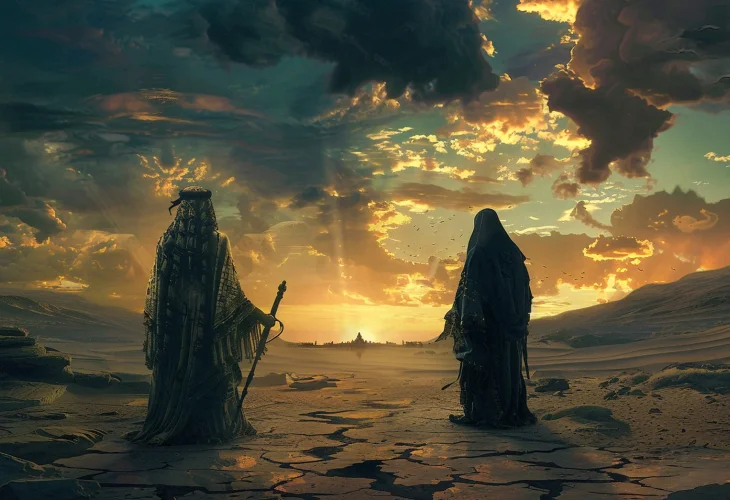History and Archaeology
Isaac and Ishmael: The Last Chapter
The so-called Palestinian issue is not just about borders but a centuries-old religious battle between two descendants of Abraham

For two thousand years, Jews lived in exile, never letting go of the dream to return to the Land of Israel. Wherever they wandered, they kept their identity, waiting for redemption.
In modern Europe, many began to believe they could belong fully to the nations around them. Some stopped praying for the Messiah, imagining they could live as Germans or Frenchmen without fear. But history proved otherwise. Anti-Semitism was too deeply rooted. The Dreyfus Affair in France showed Jews they would never be fully accepted. Theodor Herzl understood that Jews needed a homeland of their own, safe, Jewish, and free. This gave rise to Zionism, which brought waves of Jewish return.
But Muslims could not accept a Jewish revival. In Islamic teaching, Jews were to live in submission until they accepted Islam. At first, opposition was small and local, but soon Arab states organized, armed, and funded militias to fight the Jews. Leaders like Haj Amin al-Husseini incited riots, while commanders like Fawzi al-Qawuqji led armies against Jewish communities long before 1948.
When Israel declared independence, Arab armies invaded, seeking to destroy the new state. By miracles, they failed and have failed to this day.
This is the ancient struggle between Isaac and Ishmael in modern form. Ishmael sees Isaac rising again, claiming the land and calling on God in Abraham’s name. But Ishmael views himself as the true heir, and Israel’s rebirth challenges that claim.
The so-called Palestinian issue is not only about borders, it is a religious war. The Muslim world sees it as a mission to prevent Jewish renewal. Yet as in every generation, we will hold fast to the gift of our father Abraham, be a light to the nations and endure.

